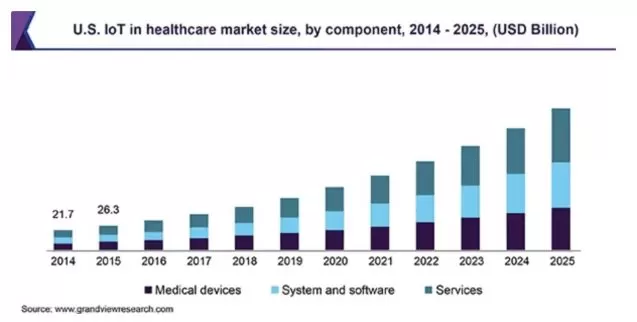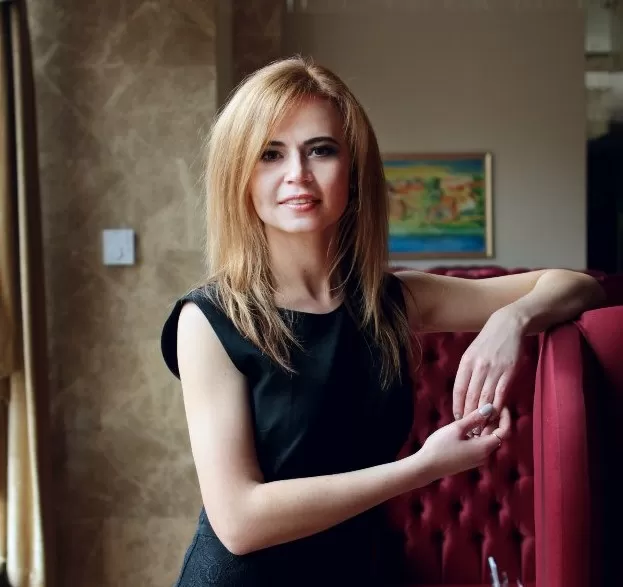Every tech-savvy person has heard of the Internet of Things (IoT) at least once. In simple words, it is a network where devices that are equipped with various chips and sensors can exchange information via the Internet.
Before the advent of the Internet of Things, patient-specialist communications were only possible during visits patients could also call or send text messages. Doctors were unable to keep constant track of a patient’s health and give timely recommendations, neither there was equipment that would allow such things.
Today, with the help of IoT doctors can observe patients distantly without compromising the quality of medical care, and patients, in turn, follow the recommendations in a timely manner under the guidance of a doctor. Thanks to this approach, patients’ adherence and compliance have increased and became more productive. Another positive fact about remote monitoring is that patients no longer have to queue in emergency rooms and save money on visits.
Healthcare is one of the hottest areas for applying IoT. We will take a closer look at how much this area is being transformed with the use of modern technologies because IoMT is a game-changer for patients, doctors, hospitals, and even insurance companies.
IoT for patients
Perhaps the most common IoT device today that is available to everyone is a fitness band or a smart watch. Today they can not only send different notifications but also count steps, measure the pulse, take an ECG, and inform you about an irregular heartbeat. Also, you can send your ECG to a doctor right away or simply keep the recordings to compare them after some time.
For a busy person, it is handy to have a device that will remind when it is time to take medication, measure blood pressure, heart rate, blood sugar, or do some exercises. No more worries that you will miss out on something while you have reliable companions by your side. Also, smart devices significantly increase the quality of elderly people’s lives and their families. You can be sure that your relative is safe and if anything extraordinary happens, you and a healthcare provider will receive an alert notification.
In some cases, a device can even convey the patient’s condition, such as reporting the absence of a pulse and the ambulance will better understand how quickly they need to arrive and help.
IoT for physicians
Today physicians have a wide choice of wearable devices for home monitoring patients’ health. Multiple sensors and functions help to receive hourly, daily, weekly reports and increase the accuracy of the diagnosis significantly. Together with this, modern health tracking tools allow you to schedule a more effective treatment timewise and follow it under the guidance of a doctor. Such a flow also has great importance for physicians they now can allocate time between patients better as they see who needs urgent help and who can wait.
IoT for hospitals
This is very impressive what IoT can do for hospitals and how much it can help medical staff with their work.
Radio-frequency identification (RFID) tags responsible for tracking the inventory of a hospital will help to quickly spot where a certain piece of any equipment is like all kinds of chairs, airbags, analyzers, etc. and how many of them are currently in use or completely gone.
Moreover, the implementation of IoT will help to gather information about X-ray machines, tomography scanners, cameras for medical imaging, MRI machines, and other items when exactly they will need maintenance. You can achieve such a detailed analysis that the system will show what exactly needs to be replaced or checked. All that makes the maintenance process predictable and flexible for budget planning.
IoT for health insurance companies
Insurers have largely leveraged the power of the Internet of Things to facilitate customer interactions and to speed up and simplify underwriting and process claims. However, more and more IoT-based services and business models are emerging that are very attractive to insurers.
The time of paperwork and filling in multiple documents is coming to an end. Today insurance companies have phone apps and people can submit claims and add pictures right from their phones. As a result, people are more satisfied with the reduced request processing time. Not only do insurance companies save time on processing claims but also can reduce the cost of each case. Access to real-time data recordings makes it easier for an agent to figure out the cause and exact time of an accident and how serious the incident was.
Summarizing the major advantages of IoT in the healthcare industry:
To sum up all of the above, let’s highlight the major advantages of the IoT in healthcare for every participant.
Cutting costs: IoT reduces the costs of a patient who needs fewer doctor appointments and can send the necessary information just via the Internet. Hospitals can plan a budget on maintenance smarter.
Better treatment approach: physicians receive better quality information and make more informed decisions about the treatment a patient should receive. In addition to the main, patients can receive effective preventive treatment.
Improved diagnosis accuracy: continuous monitoring of a patient’s health makes it possible to diagnose people more accurately.
Effective inventory and medication management: one of the biggest issues is the track of various consumables that a hospital spends in large quantities every day. IoT brings this duty to the next level and gives a complete picture of what goes where and what for.
All this is very good, of course, but do not forget that everything that was once uploaded to the Internet remains there forever. Data protection and security are still open questions. It is crucial to protect the personal data of patients from unwanted access and let people who work for healthcare improve patients’ health and life quality. The IoT market size is expected to reach $534.3 billion by 2025 or by 19.9% every year according to the latest Grandviewresearch report.

IoT gives access to unique information and opportunities and people should learn how to get the most out of it. Perhaps IoT will show more surprising and unexpected results over time.
Have any ideas for creating a healthcare app? Rely on us
Since 1997 we’ve been improving our healthcare area knowledge and providing high-quality services on custom healthcare solutions for hospitals, pharmacies, practitioners, and others. Our team will help you to understand what you need best to improve the quality of your services, workflow, item management, or customer experience. We are capable of creating EHR/EMR systems, radiology software, mobile healthcare apps, analytics software, and more.









